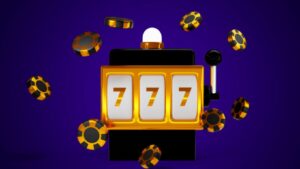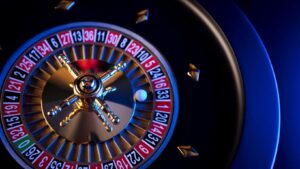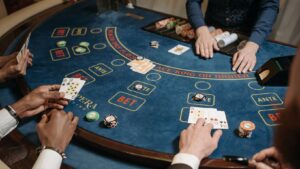Table of Contents
ToggleIn a world where ancient gods and goddesses once ruled the skies and shaped destinies, the allure of pagan deities still captivates many. Whether you’re a curious seeker or a seasoned practitioner, diving into the realm of these divine beings can be as thrilling as a rollercoaster ride through mythology. Imagine sipping tea with Thor or sharing a laugh with Loki—what could be better?
Overview Of Pagan Deities
Pagan deities represent a vast array of gods and goddesses, each embodying distinct traits, attributes, and myths. Various cultures and civilizations have revered these deities for centuries, showcasing their integral role in human history and spirituality. Ancient Greek gods like Zeus and Athena exemplify the mighty forces associated with nature and human experience.
Norse mythology boasts figures like Odin and Freyja, with rich stories that reflect the complexities of existence. Celtic deities, such as Brigid and Lugh, often symbolize craft, healing, and agricultural abundance. Different pantheons offer numerous representations of similar fundamental struggles, such as love, war, and the changing seasons.
Believers often form connections with these figures, fostering personal relationships that deepen their spiritual practice. Rituals and celebrations centered on pagan deities strengthen community bonds while celebrating the cycle of life. Many practitioners draw inspiration from the unique attributes of these deities, integrating them into modern spirituality.
Books about pagan deities provide valuable insights into myths, rituals, and philosophy. They serve as educational tools, assisting readers in navigating this ancient world and its relevance in contemporary practice. Understanding these deities equips individuals to engage with their teachings meaningfully, fostering a sense of belonging within a larger context. Through exploration and study, they uncover the wisdom of the past and its impact on today’s spiritual landscape.
Types Of Pagan Deities

Pagan deities represent various aspects of life and nature. Each group of deities reflects unique attributes and cultural significance.
Nature Deities
Nature deities embody elements like earth, water, air, and fire. They personify vital forces that govern the natural world. Figures such as Gaia from Greek mythology stand for the earth, nurturing all living beings. Similarly, goddess Demeter oversees agriculture and harvests, symbolizing growth and abundance. In many traditions, nature deities serve as guardians of the environment, fostering a connection between spirituality and ecology. Rituals often honor these deities, celebrating seasonal changes and agricultural cycles. Cultivating reverence for nature promotes environmental awareness and stewardship.
War Deities
War deities represent strength, strategy, and conflict. They often govern battles, warriors, and martial prowess. For instance, Mars in Roman mythology exemplifies aggression and protection. In contrast, Athena provides strategic wisdom, guiding warriors to victory. Such figures are revered for their protective roles in safeguarding communities. Many cultures celebrate war deities through festivals and rituals that honor bravery and valor. These traditions reinforce community identity and shared beliefs about heroism and sacrifice. Engaging with war deities encourages contemplation about the nature of conflict and the balance between peace and war.
Recommended Books On Pagan Deities
A variety of books delve into the world of pagan deities, offering insights that cater to both newcomers and seasoned practitioners.
Classic Texts
Classic texts provide foundational knowledge about ancient pagan deities. “The Golden Bough” by James Frazer examines mythology and ritual across cultures. “Theoi Greek Mythology” by Aaron J. Atsma serves as a comprehensive online resource about ancient Greek gods. More than simple stories, these works reveal overarching themes in human culture and spirituality. “Norse Mythology” by Neil Gaiman reinterprets Nordic tales, presenting gods like Odin in a relatable manner. These classics illuminate the multifaceted nature of pagan deities and their significance in various belief systems.
Modern Interpretations
Modern interpretations expand on traditional beliefs, blending ancient lore with contemporary spirituality. “The Book of Pagan Gods” by Geraldine Hughes offers an accessible overview of diverse deities. This text caters to those exploring various pantheons and practices. “Paganism: An Introduction to Earth-Centered Religions” by River Higginbotham presents a modern perspective on pagan traditions, showcasing the relevance of ancient gods today. Authors like D.J. Conway explore the integration of pagan deities into modern practices, highlighting their continued influence on spirituality. These works foster deeper connections and understanding of ancient beings in today’s context.
How To Choose The Right Book
Selecting the right book on pagan deities requires understanding personal interests and spiritual needs. Focus on the themes that resonate. Readers interested in mythology may find classics like “The Golden Bough” engaging, while those seeking contemporary insights might prefer “The Book of Pagan Gods.”
Consider the cultural context of the deities. Ancient Greek or Norse figures often convey different messages and narratives. Look for books that explore specific pantheons, providing depth on gods like Zeus, Odin, or Brigid.
Identify the book’s purpose. Educational works teach about rituals and practices, while narrative interpretations provide engaging storytelling. Balance both aspects for a richer understanding.
Examine the author’s credentials. Books by respected historians or practitioners offer reliable information. Strong authors include Neil Gaiman and Geraldine Hughes, known for their contributions to the genre.
Read reviews to gauge what other readers found valuable. Feedback on content relevance and clarity can guide choices. Online platforms or dedicated pagan forums often feature discussions on popular texts.
Preview chapters whenever possible. Skimming through introductions or sections can reveal writing styles. Engaging prose often maintains reader interest better than dense academic language.
Evaluate the book’s publication date. Recent texts may include updated interpretations along with modern practices in paganism. Awareness of contemporary relevance enhances connection to ancient deities.
Engage with local communities or online groups. Recommendations from experienced practitioners often lead to valuable resources. Personal experiences shared within these circles can highlight the strengths of specific texts.
Exploring books on pagan deities opens a gateway to ancient wisdom and modern spirituality. These texts not only offer insights into the rich tapestry of myths but also encourage personal connections with the divine. As readers delve into the stories of gods and goddesses, they find inspiration for their own spiritual journeys.
The diverse range of available literature ensures that everyone can find something that resonates with their interests. Whether it’s understanding the significance of nature deities or the complexities of war gods, there’s a book for every seeker. Engaging with these narratives fosters a deeper appreciation for the past and its relevance in today’s world, enriching both individual practices and community ties.




